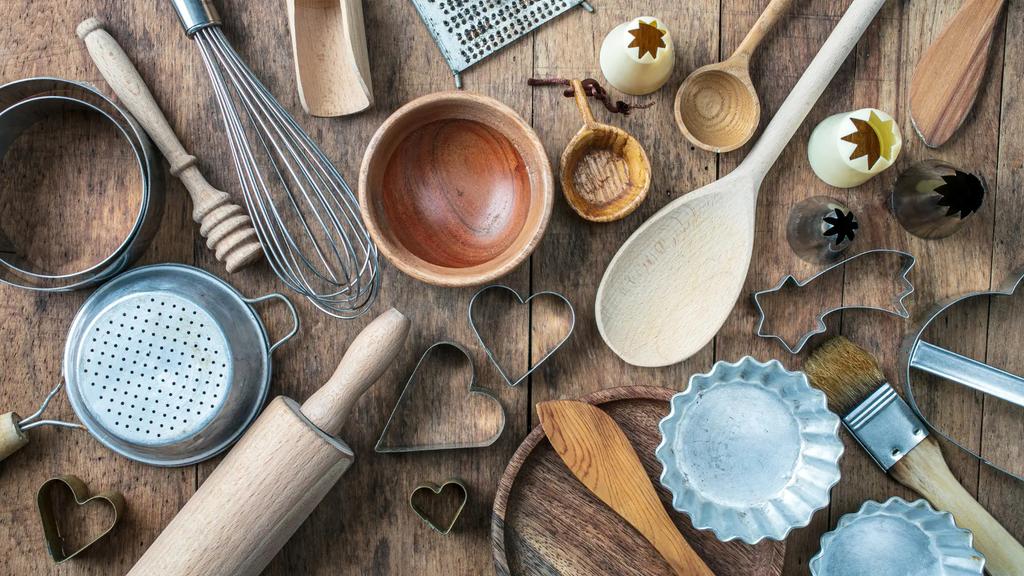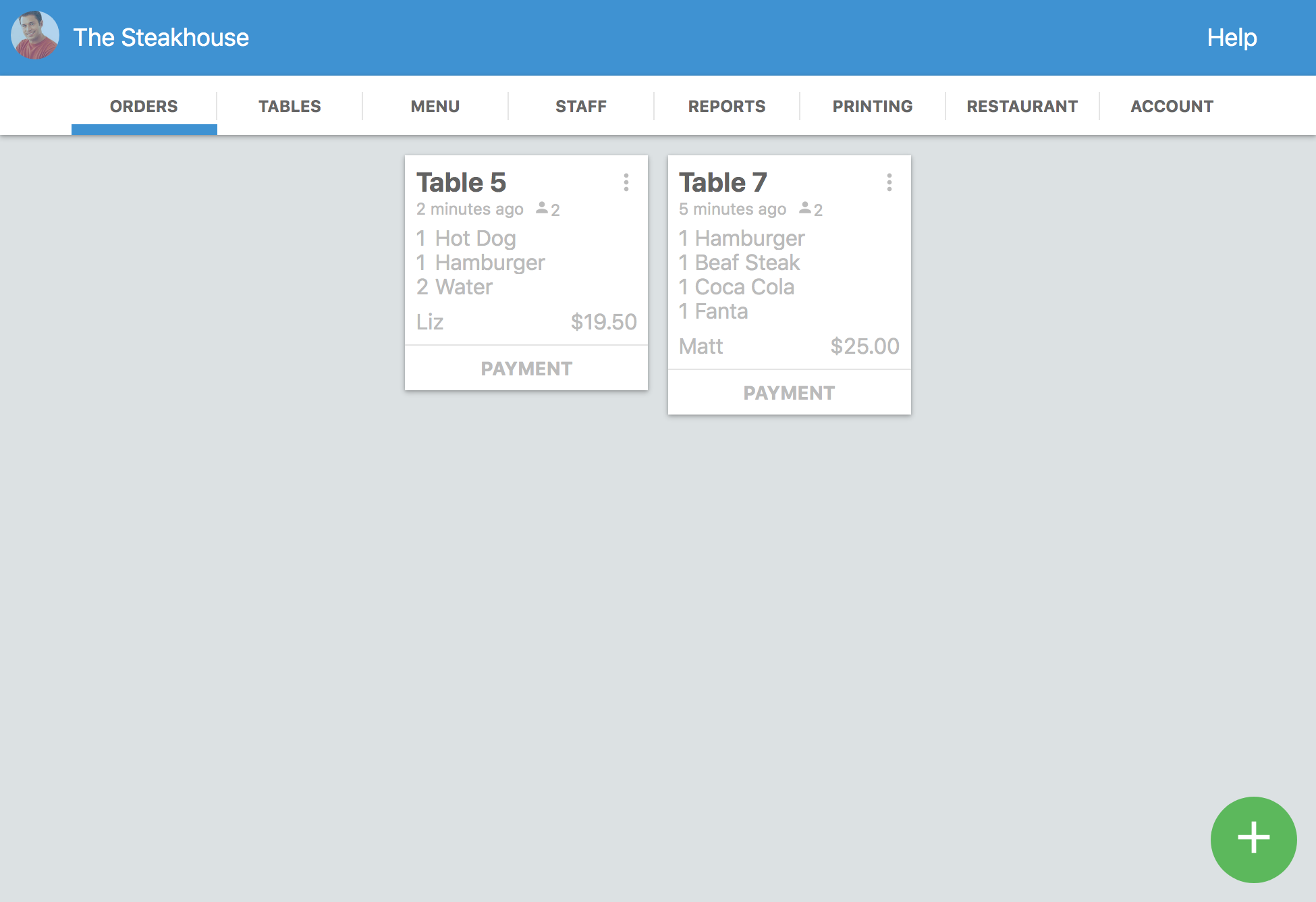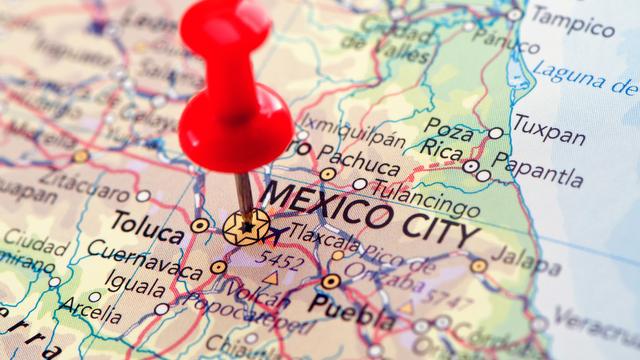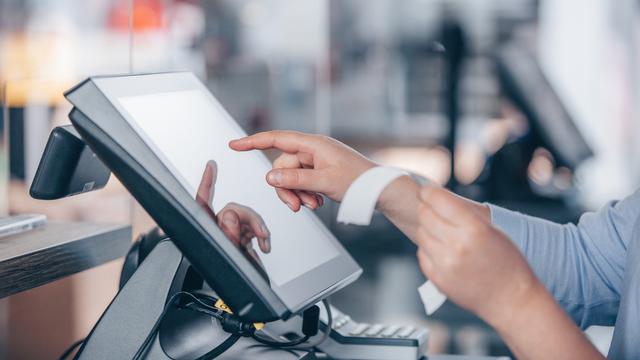Starting a bakery is a great idea if you’re into baking and want to make a profit out of your skills. However, even the most skilled baker can’t produce without the right set of tools. In this article, I’ll talk about the essential equipment you’ll need to run a successful bakery business, regardless of its type. This is vital to starting this type of business because the items I’m about to cover tend to be expensive, especially if you’re considering industrial-grade equipment. Aside from covering the tools, I’ll also provide you with a quick guide on how to choose the right equipment for your new venture. Let’s get right into it!
Baking Equipment
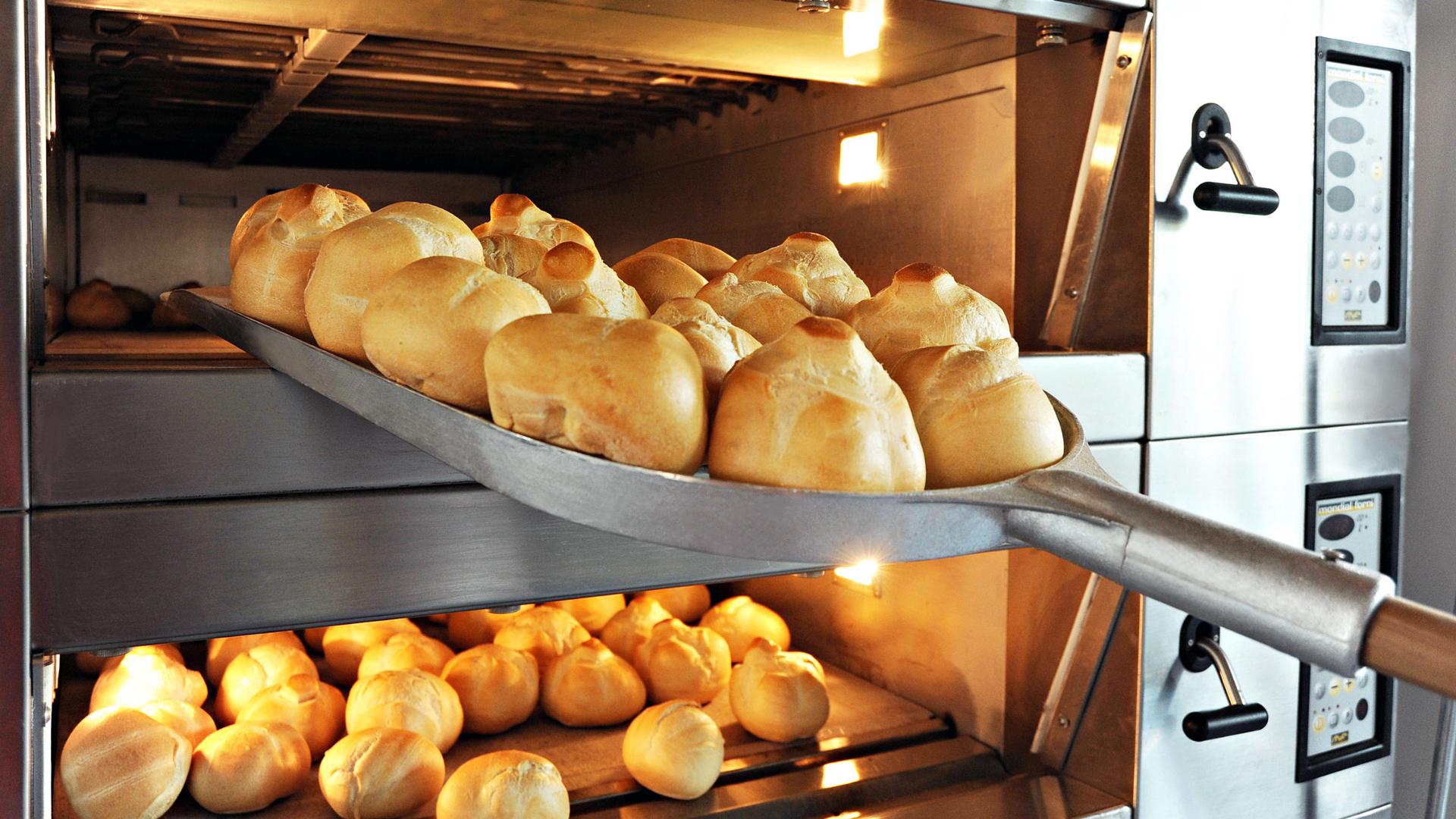
This is a no-brainer – to bake you will need the best baking equipment for the task. But, if you don’t know about ovens, I warn you, things might get out of hand when researching for the right one for your business. Why? Because there are numerous types of commercial ovens, each with interesting capabilities and features that can make or break your business, or worse, the bank. But don’t worry, because I’ll quickly go over the different types of ovens you might need for a bakery and a little more below.
Types of Ovens
First, let’s talk about ovens. There are four main types of ovens you should consider for a commercial bakery – electric and gas convection ovens, and electric and gas conventional ovens. Here’s a rundown on the advantages and disadvantages of each:
- Electric convection ovens: They are better suited for bakeries that want to achieve a constant product. Convection ovens cook more evenly when compared to conventional ovens, which is an advantage to maintain consistency. Still, electric ovens in general consume more energy than conventional commercial ovens, which is vital to factor in since businesses need to keep track of their utilities.
- Electric commercial ovens: These are not as commonly used, but are still efficient to provide consistency to your products. However, they can be expensive and still spend more energy than conventional ovens.
- Gas convection ovens: They provide superior results in terms of quality but are not as good to maintain consistency. However, they are the go-to option for businesses that need to keep the operation as cost-efficient as possible since gas is generally cheaper than electricity. Even so, you must factor in that if you must install the gas connection, it can be costly and nullify the initial savings.
- Conventional gas ovens: Similar to electric commercial ovens, they are not as efficient to provide consistency, but they are great if your main goal is quality – keep in mind they are tricky and slightly harder to control. They are also cheaper than electric commercial ovens, making them the third-best option.
These four are the go-to options for bakeries around the world. Of course, that doesn’t mean you should just pick out of these four types and settle for what they can do individually. Instead, you should focus on what equipment allows your business to increase productivity, quality, or any other goal you have. For example, you might want to start your business the cheapest way possible while achieving the best quality – then you should go for either gas convection ovens or gas conventional ovens since they are the cheapest assuming there is a connection available. Another factor to consider is features. Not all ovens have the same features, design, size, and more. That’s why you must go for the ovens that provide the most features your business will use. Some ovens are self-cleaning, some aren’t, some are huge, some are small and easy to accommodate, and so on. Make sure to measure the size of your kitchen and check if there are the necessary gas or electrical connections to install the ovens, too!
Other Baking Equipment and Traditional Ovens
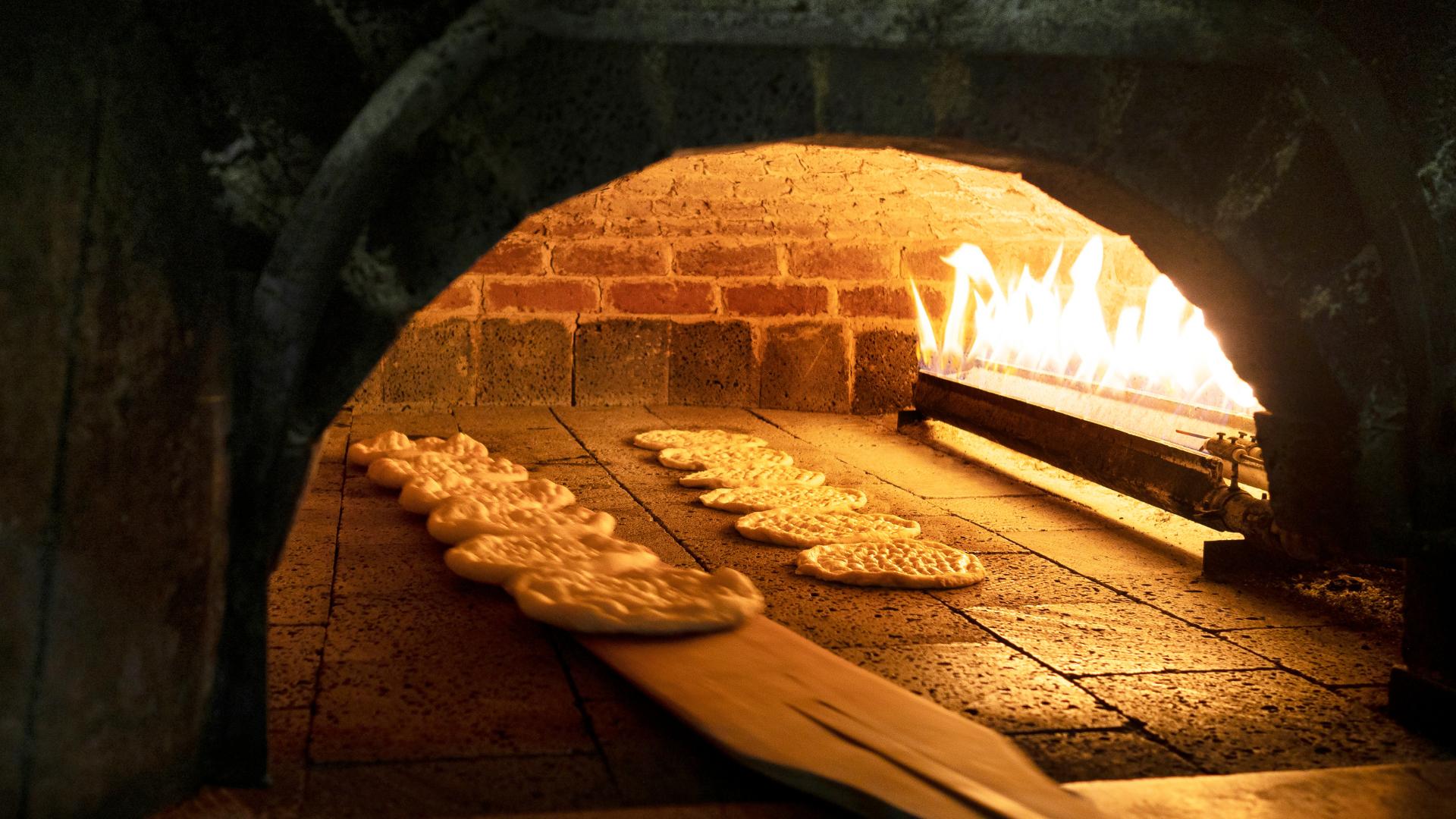
Other baking equipment might include specialized equipment such as a dough fermentation or proofing oven. These are necessary for bakeries to produce bread as efficiently as possible because they provide the necessary environment for the dough to rise properly before baking. You will need one or more if you have to produce big batches of dough and bread constantly.
Other traditional equipment used for baking also fits this category, like a traditional brick oven or masonry oven. There are many varieties of traditional baking and if you’re aiming to offer niche products or maintain the traditions in your country, these are the way to go. You can have them made locally by an expert and start baking as soon as it’s ready. Beware of the cost of expertise though!
Common Cooking Equipment
Depending on the type of bakery you have and its menu, you’ll likely need other types of cooking equipment such as common stoves, grills, and fryers, along with accompanying cooking tools like frying pans and pots. If that’s the case, feel free to check out our guide on commercial kitchen equipment for a thorough reference.
Food Processing Equipment
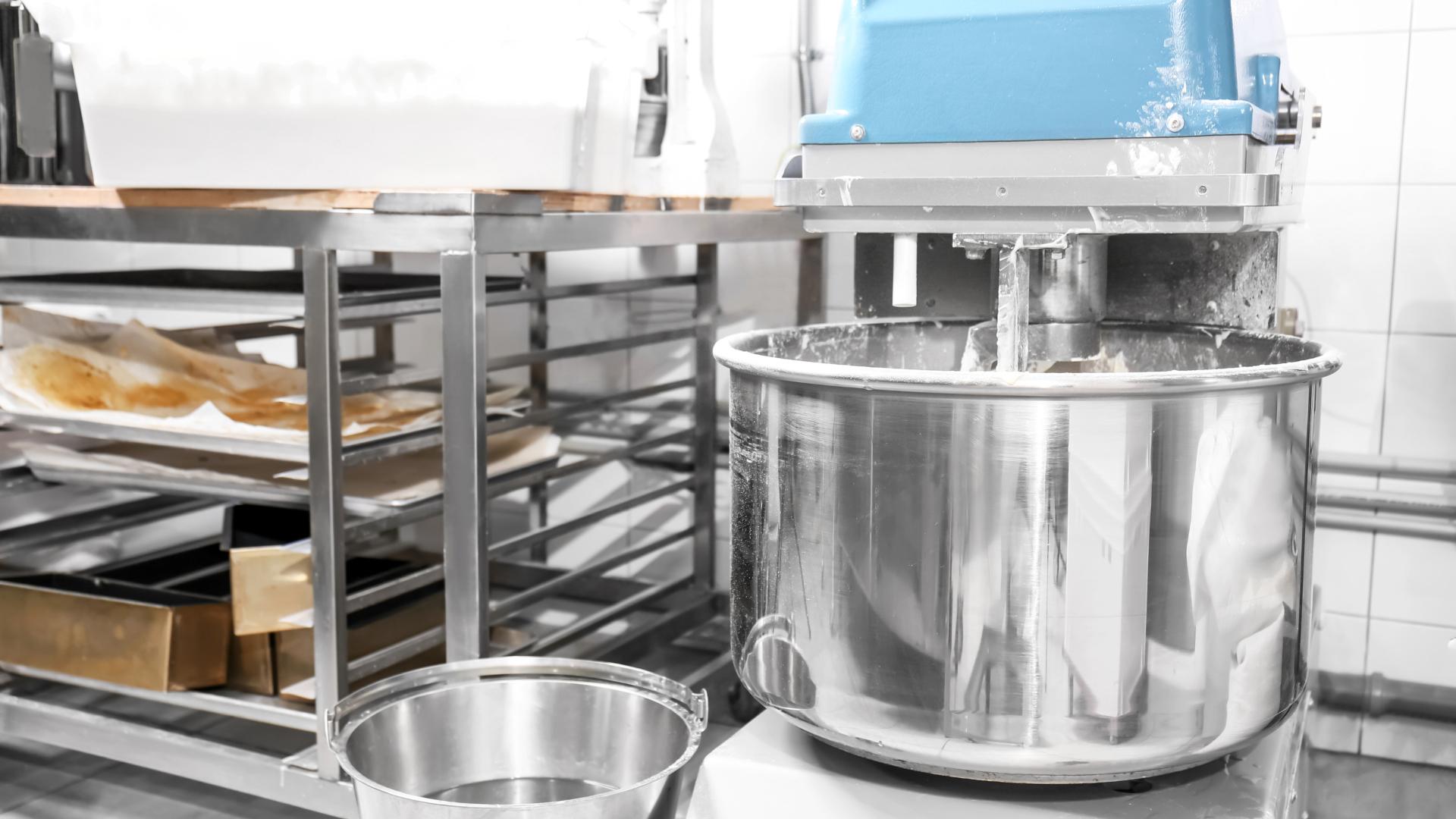
Food processing equipment is everything that allows you to prepare food before or after cooking it. The main tools you’ll need for a bakery are the following:
- Industrial dough mixers: If you’re working with industrial quantities of bread and you want to achieve consistency, a dough mixer will be extremely important for your operation. Not only do they save time, but they can also streamline your production process as well as reduce the number of employees you’ll need to achieve similar results.
- Industrial blenders and food processors: These are the heavy-duty versions of common kitchen appliances. They are much more durable, withstand heavy usage, and also larger batches of whatever ingredients your recipes require.
- Industrial slicers: If you’re going to work with anything sliced, like sliced bread, ham, meats, cheeses, and more, different slicers are faster and arguably safer than kitchen knives.
If you run a simpler operation, you can always opt for the regular versions of these tools.
Tables, Shelves, And Storing Equipment
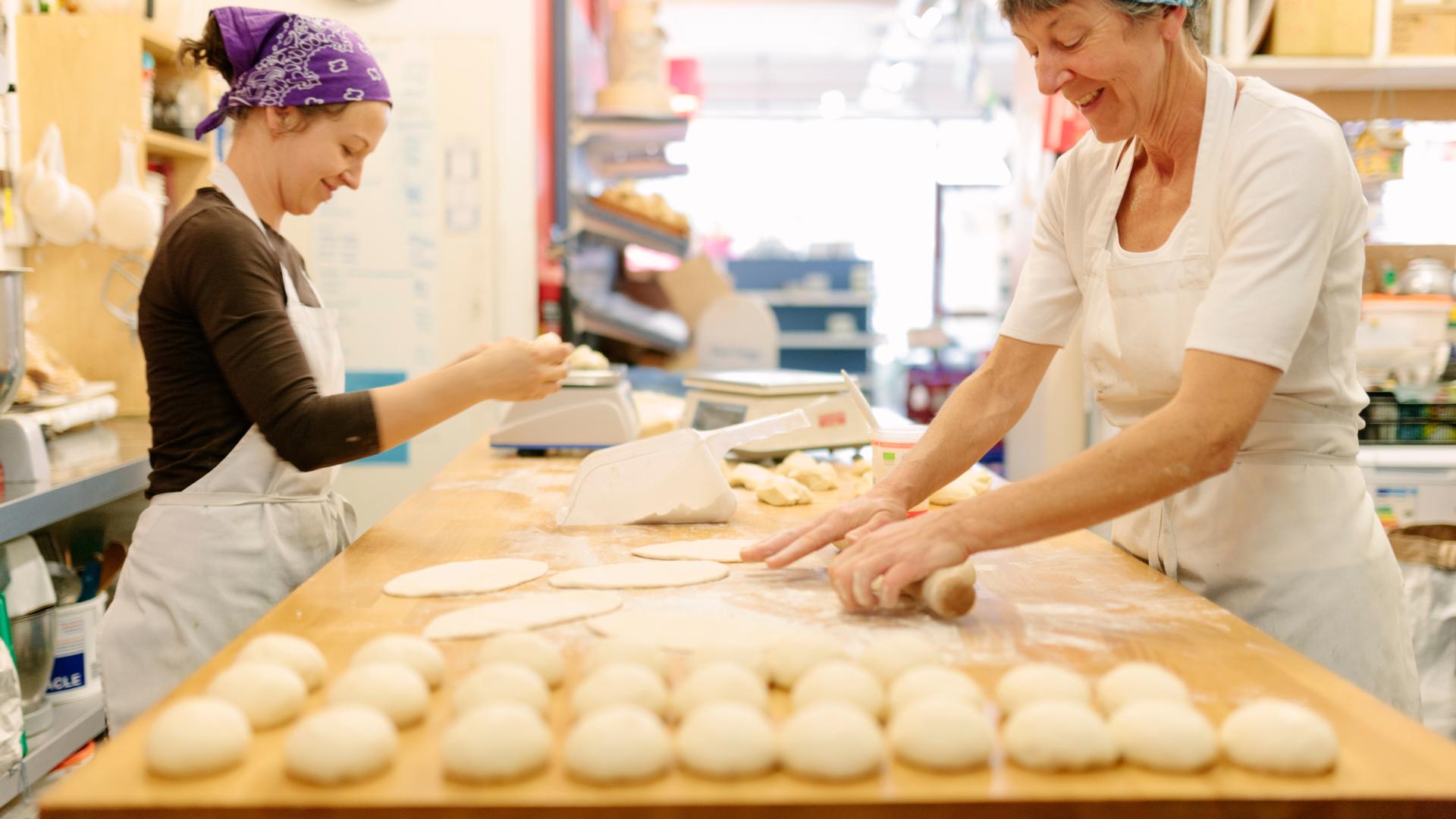
All commercial kitchens must have proper working areas with adequate tables. In the case of bakeries, this is extra important because working with large batches of dough requires a lot of space. Working on a table without enough surface is frustrating and can cause losses and mistakes, which are not good for business. Aside from tables that are comfortable enough for work, you will need to equip your kitchen with proper shelves and storage spaces. This is necessary to store equipment and accessories. Also, storage is vital when it comes to maintaining the quality of ingredients. Make sure to store dry ingredients properly and refrigerate the ones that require refrigeration. This is crucial considering bakery ingredients usually come in big batches, which can make losses even bigger if they’re mishandled. That’s one of the most common mistakes of new bakeries!
Refrigeration Equipment
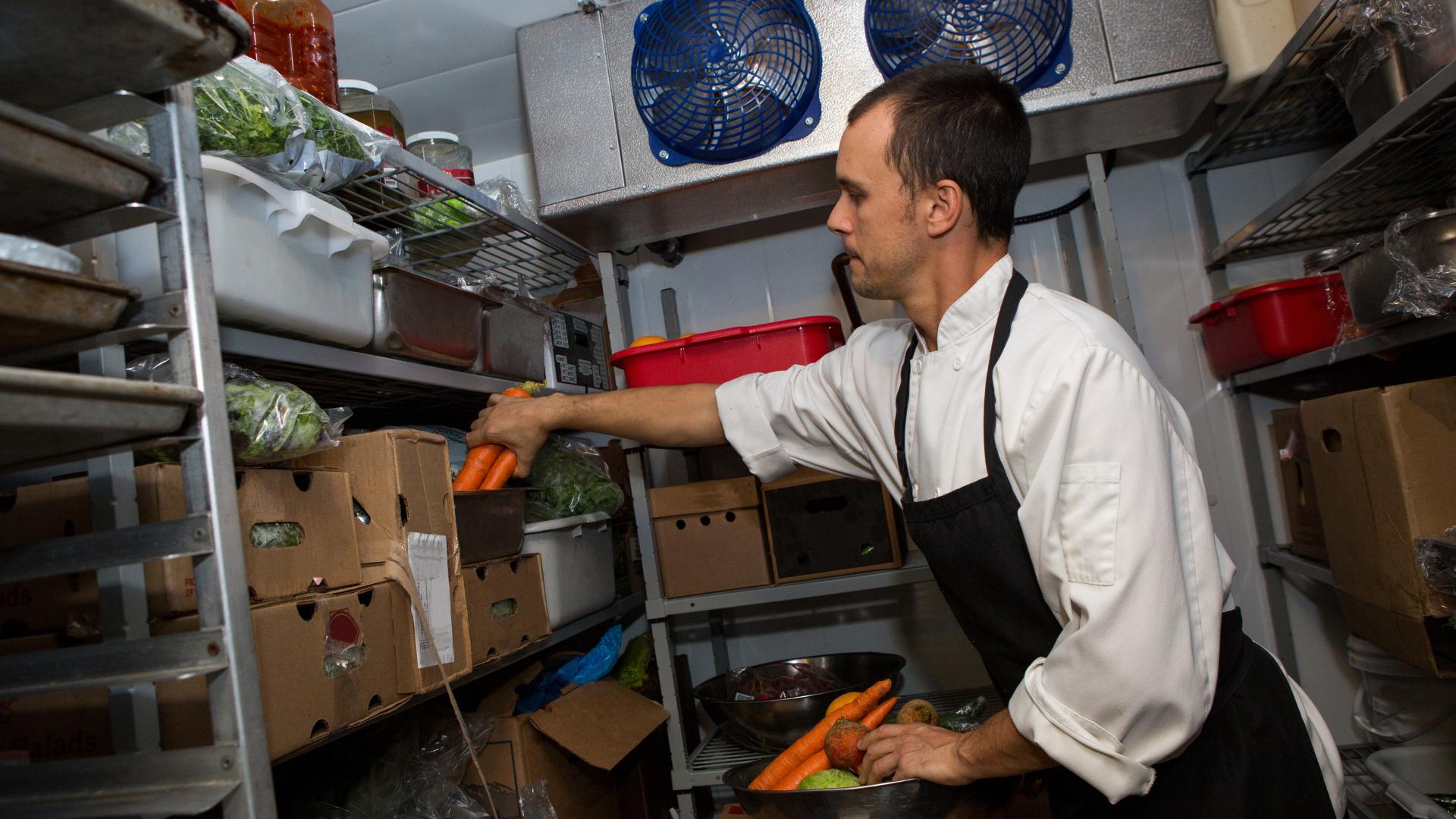
In any food business, you’ll need to store ingredients at the right temperature – that’s where refrigeration equipment comes in. Refrigeration equipment varies depending on the ingredients you must store. You need to invest in high-quality freezers and refrigerators to keep your food and ingredients fresh. Refrigerators and freezers are crucial for proper inventory management and cost economy. You first need to consider the following when buying the right refrigeration for your bakery:
- The size of your kitchen
- How much and the type of food you will need to store
- Your budget
Keep in mind that there are different types of freezers and refrigerators as well, like reach-in and chest designs. Pick the one that makes the most sense for your particular needs!
Common Baker Tools and Accessories
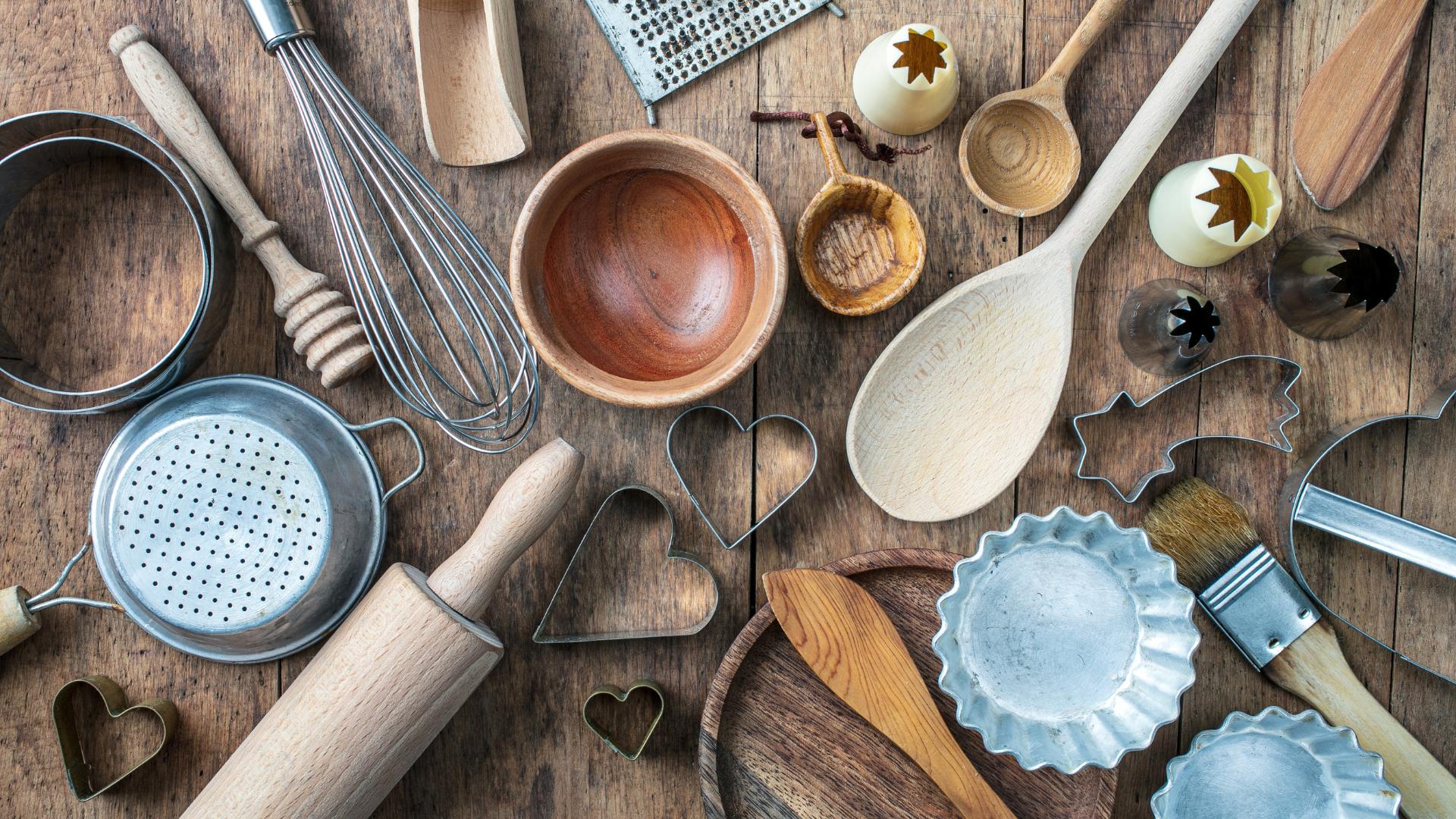
Bakers are not so different from cooks in a restaurant in that they will need the following tools:
- Different types of knives and cutlery
- Color-coded cutting tables
- Pots and frying pans
- Containers of different sizes and materials
- Bowls of different sizes
- Graters
- Juicers
All of these are fairly common in any commercial kitchen. Still, other types of equipment are extensively used by bakers, such as the following:
- Rolling pins
- Strainers
- Cooling racks
- Baking trays of different sizes and shapes
- Measuring cups of different sizes
- Commercial weight scales
- Baking mittens, aprons, and other safety equipment
- Hand mixers
- Hermetic containers
- A set of spatulas for different needs
- Dough scrapers and cutters
We couldn’t possibly cover all the tools a baker might need in this list, but these will give you a good starting point.
Bakery Display Equipment
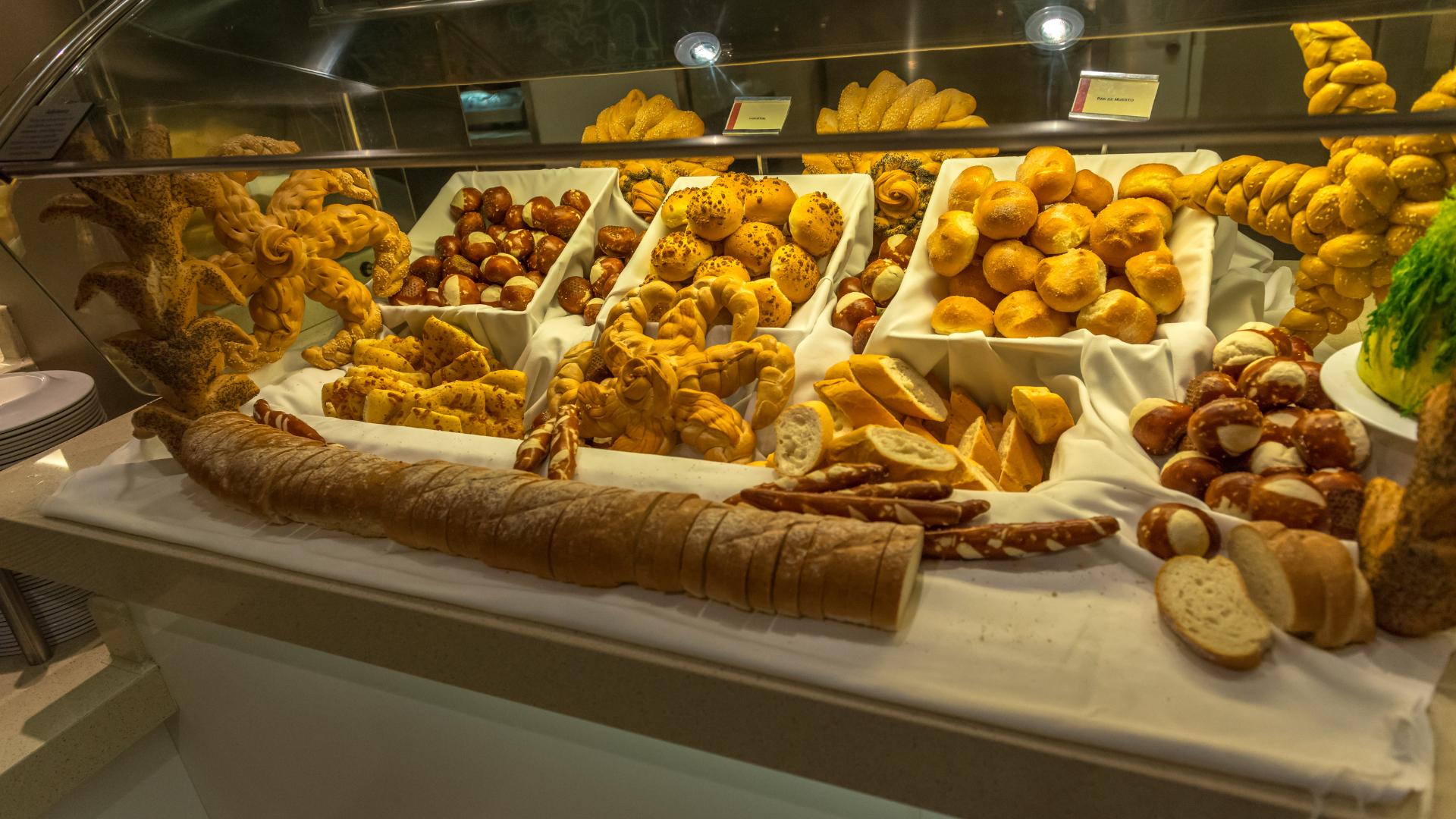
Let’s not forget about common display equipment for bread – these are a staple for any bakery and pastry shop around the world. Heated or cooled displays are simple equipment that allows you to showcase your bread. They’re usually placed at the front of the store where customers can see them and pick what they want to buy. It’s very important to make the right choice because not only are they part of the marketing of your business, but they’re also a tool that keeps bread warm and fresh for customers to take home. The right display is comfortable to use and reload, has a good size to fit several products, and has adjustable settings to use the right temperature for the bread inside. If you can’t guarantee that the bread being displayed in the front of your store both looks beautiful and is fresh, your business will suffer the consequences.
Bakery Technology and POS Equipment
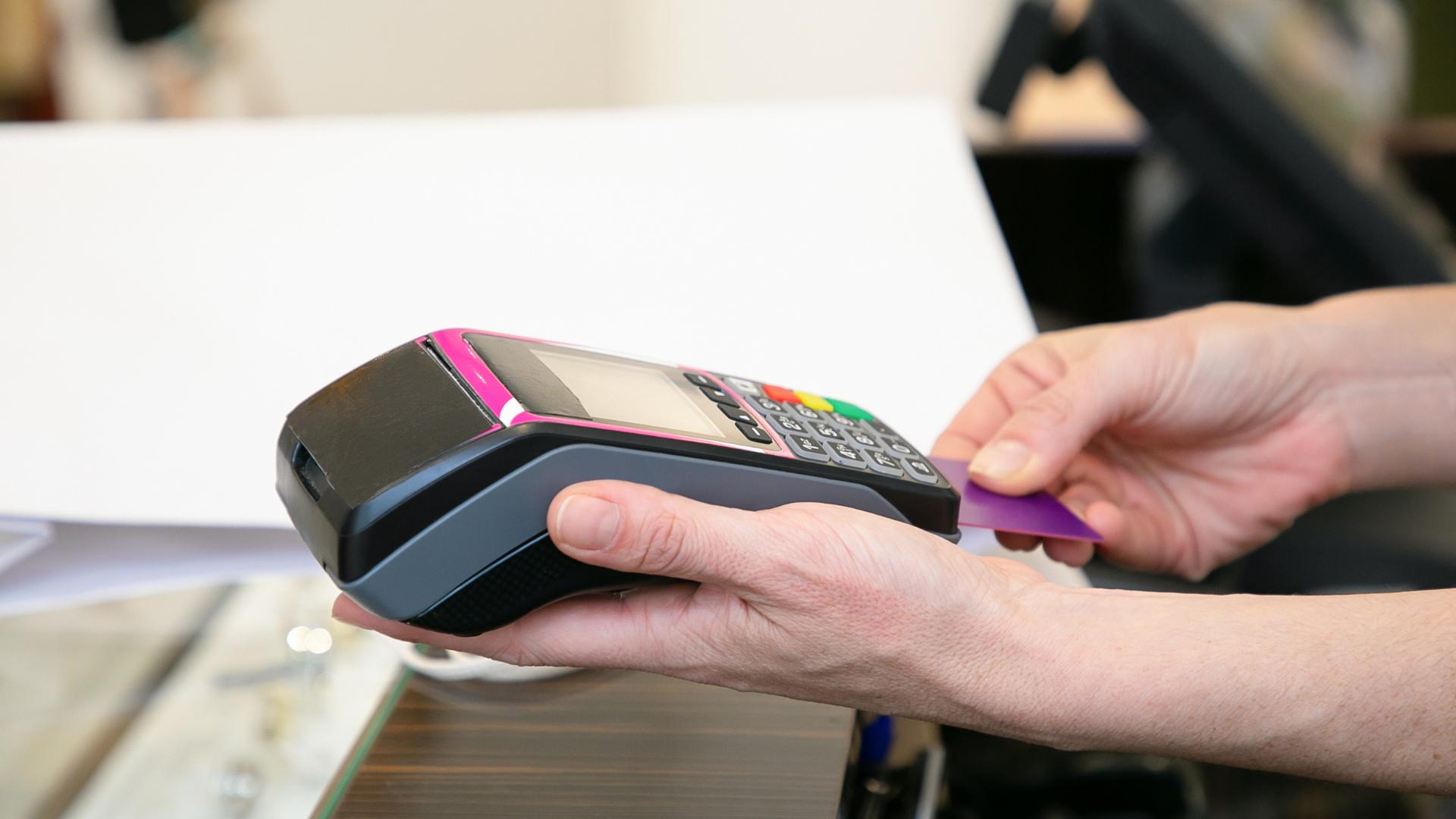
If you’re running a customer-facing bakery shop, then you’ll need to equip your business with the right technology to satisfy your customers’ needs as well as to keep up with the basic daily operations. That includes the following equipment:
- One or more computers to install the POS system. The number depends on the volume you need to cover and the number of cashiers you’ll have. If you have a sizable influx of customers, the more the better.
- One or more thermal printers. You’ll likely need to print receipts for your customers so these are standard equipment.
- Card readers to receive card payments and cash registers for cash.
- A good router and Wi-Fi connection.
- And a POS system that allows you to take advantage of the rest of the technology efficiently.
This equipment is fairly common in most food businesses and they can be rather expensive. If you’re looking for a better solution, Waiterio can help. Waiteiro is a POS app that adapts and covers your needs without expensive equipment. To use our POS app, you only need to install it on the device you prefer – it’s compatible with iOS, Android, Windows, Linux, and MacOS devices. Also, you can connect it quickly to cash registers, thermal printers, and other devices to run your business as efficiently as possible. Keep track of sales, profits, and more! Learn more about what Waiterio can do for your business.
How To Tailor Your Bakery’s Equipment

Finally, here’s a very important question you need to ask yourself before going all out buying your equipment – what do you really need? To answer that question, you need to go through the following steps to create a list of the equipment you will need.
1. How Many Bakers Will You Have?
Answering this is crucial because knowing how many bakers you’ll need will determine how much preparation and baking equipment you must have inside the kitchen. Usually, the more equipment you have, the fewer bakers you’ll need because the equipment takes care of most of the kneading, mixing, and so on. If you have many bakers in a well-equipped kitchen, your business will likely be overstaffed. On the other hand, if you have little equipment, you will need more bakers to take on the tasks and more working areas.
2. Do You Foresee a Large Volume of Customers?
If you do, you need to prepare your business to produce at a very fast pace and in big quantities, which increases both the size and the amount of equipment you’ll need for your kitchen. If volume projections are smaller or you plan to have a small business, then you won’t need to go all out buying the biggest and most expensive equipment.
3. What’s Your Bakery’s Offer?
Finally, your offer will also play a big role in the equipment you’ll need. Some types of bread require specific preparation, rising conditions, storage, and baking settings, meaning your options for ovens, working space, and other equipment are more limited. That’s when you should invest in specialized equipment. If instead, you plan to offer more general options, then a common convection oven with as many features as you might need is the way to go.
4. Create a Workflow for Your Bakery
Creating an organized and efficient workflow with help from your bakers is also a good practice to ensure you have enough working surfaces and the best possible organization for producing bread. This will also help you organize the equipment in your bakery, estimate the size you have to work with and add or subtract items to your final list of equipment.
5. Create a Budget
Coming up with an estimate of the budget you’ll need to buy all the equipment for your bakery is also a great idea to decide on equipment. You must focus on buying high-quality equipment but also make sure to explore your options thoroughly. You might end up investing more than you need in the wrong equipment and buying the most important equipment from unreliable brands if you don’t research properly.
Equipping Your Bakery Is a Big Step
Buying the best equipment for a food business is the type of decision that doesn’t let entrepreneurs sleep at night. Analyzing, comparing, and settling on a list of equipment for your bakery should take enough time. Another good idea is to visit other businesses and ask for a tour of the kitchen. Anything to ensure that you buy the right equipment goes! It’s a big investment that can make or break your business. Are you ready to make it?
